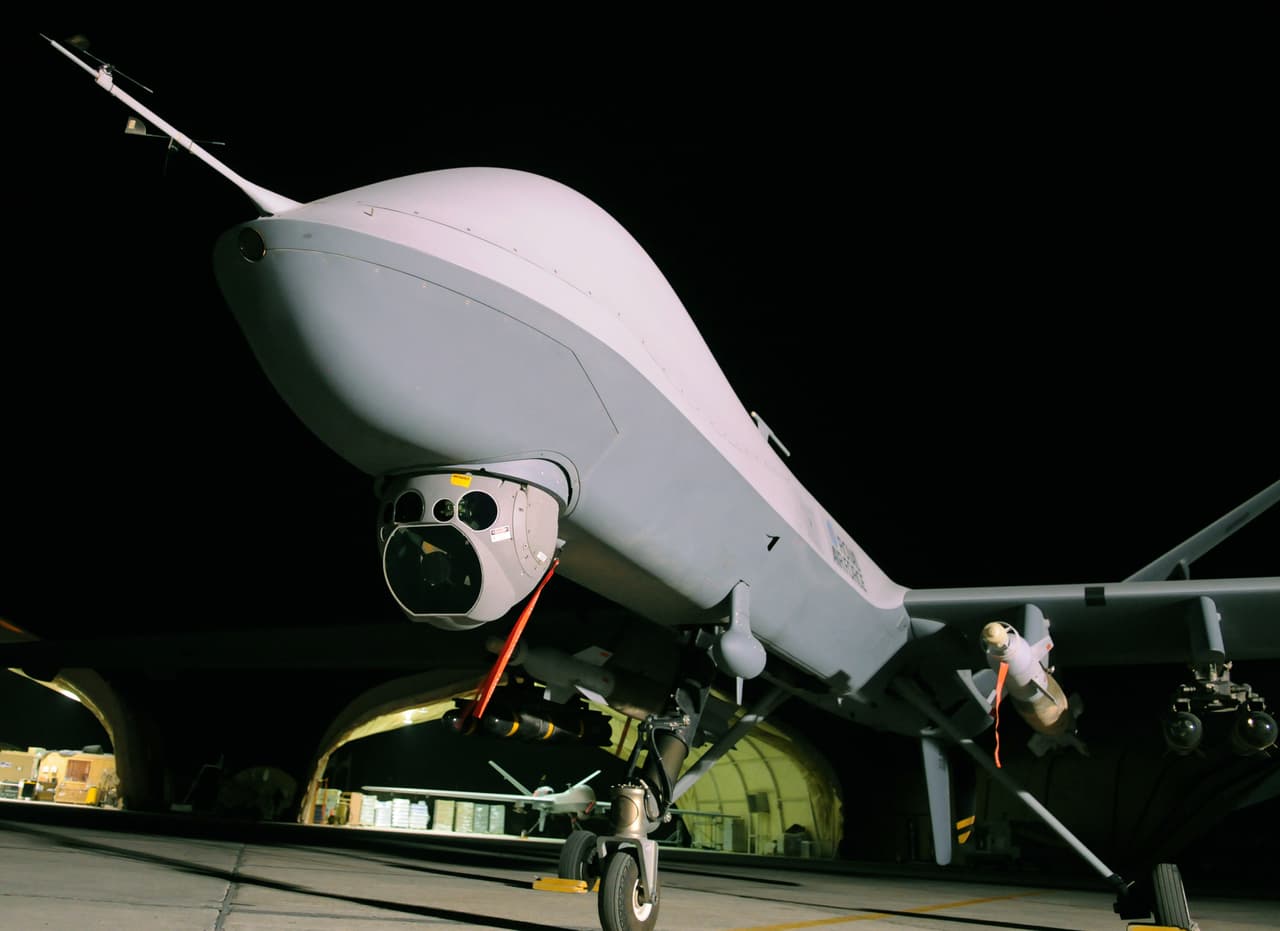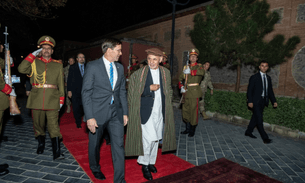
Podcast: UK drones in the spotlight – inside the Birmingham Policy Commission’s report
Study of drones in the UK (MoD)
In Drones News this week, Owen Bennett-Jones talks to the academic lead on a high profile new report on the UK’s use of drones.
Birmingham University’s Nicholas Wheeler was one of several expert commissioners who produced ‘The Security Impact of Drones: Challenges and Opportunities for the UK’ last month.
As he explained to Drones News, the report did not find any “fundamental legal or ethical challenges as a consequence of the actual nature of the technology itself.”
It did highlight some concerns over where and how drones are used however.
“A lot of the distortions in the public debate have arisen because the public tends to conflate the US use of drones in the cross-border counterterrorist role with the kind of operations that are taking place in a conventional armed conflict like Afghanistan,” Wheeler said.
“We’re arguing that the government should do more to draw a distinction between its use of the systems, and the legal basis for that, and the US justification for their use of the drones…outside of conventional theatres of operations.”
It was not clear from the language of the report whether or not it deemed US drone strikes outside of conventional theatres of operations to be illegal. Wheeler said that though the US considered them legal, the commission was not persuaded there was a “strong basis” for the UK doing such operations.
The report also highlights the potential danger that the UK might become complicit in such operations through intelligence sharing.
“The commission didn’t feel that it wanted to draw the conclusion that it had been complicit or that our continuing activities would make us complicit,” Wheeler said. “But we do very strongly raise the issue that there needs to be important safeguards in place to ensure that as a consequence of our legitimate intelligence sharing under our arrangements with the US that go back decades, we don’t find ourselves inadvertently colluding… in US targeting strikes in its counterterrorist cross-border operations.”
“Satisfying the public and parliament on that question requires a higher level of transparency…than the government has hitherto been able to provide,” he added.
Wheeler admitted that there had been a “spirited discussion” about what to call the weapons system in the report, with the title referring to them as drones but the body of the text using the term Remotely Piloted Aircraft (RPA).
Wheeler himself appeared to be in the RPA camp. He argued that as the report was seeking to influence government policy, it made sense to use the terms used by the government and the Ministry of Defence.
He was also concerned that using the term drones made it sound as if there was no pilot involved. “The danger is that when people talk about the drones there is a tendency to talk about the killer robots,” he said.
Follow Abigail Fielding-Smith and Jack Serle on Twitter.
Sign up for monthly updates from the Bureau’s Covert War project, subscribe to our podcast Drone News, and follow Drone Reads on Twitter to see what our team is reading.


